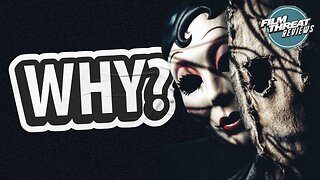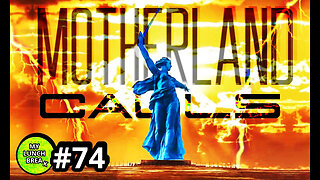Activism Uncensored: A brief Independence Day history of flag burning
On Tuesday, the 4th of July 2023, Independence Day, a small group of communists attempted to interrupt the city of Philadelphia's "Celebration of Freedom" event by burning an American flag.
Police pulled the group aside and briefly detained them, citing local law preventing fires from being burned in the park.
After a brief wait, officers declined to arrest the group because burning an American flag is a protected, lawful form of protest, but issued a warning because their tote bag also caught fire.
The precedent protecting flag burning was set in the 1989 Supreme Court Case Texas V Johnson.
The case held that Gregory Lee "Joey" Johnson, then a member of the Revolutionary Communist Youth Brigade, had been arrested wrongly for burning an American flag, because doing constituted a form of expressive speech protected under the First Amendment.
The case sparked a sort of tradition for Johnson and his acolytes. On Independence Day of 2019, the same day then-President Trump held a "Salute to America" military parade, Joey Johnson, led members of the "Revolutionary Communist Party" - or "RevComs" to do a flag burning in front of the White House.
This enraged Trump supporters and Proud Boys who had come to DC, and led to several scuffles.
Three people were detailed - all on the left-wing side - and two ultimately arrested. Joey Johnson, whose Supreme Court case 30 years earlier had set the precedent for the legality of flag burning, was charged with inciting violence and disorderly conduct.
By September 2019, the charges were dropped.
While constitutionally protected, flag burning has remained a target of politicians in both of the establishment parties. Throughout his presidency, former President Trump advocated a year in jail or loss of citizenship for flag burners.
These policy proposals echoed Hillary Clinton's, who as a senator sponsored legislation that would have federally made flag burning punishable by a year in jail and $100,000 fine.
On Independence Day 2020, amidst the height of racial justice protests that year, the RevComs returned to the White House to flex their rights in a demonstration they called the "Flag Burning Challenge."
This time, it was immensely popular among the protesters assembled there, who each got a mini flag to light ablaze.
Returning to Independence Day 2023, after the incident at Philadelphia's "Celebration of Freedom" event, the RevComs held a rally of their own in front of Independence Hall, where the Declaration of Independence and United States Constitution had been signed.
The group set up and threw red paint on a large copy of the Constitution, demanding it be replaced by a new, socialist constitution in America.
As they prepared to hold their now-traditional flag burning, an angry passerby attempted to physically confront them.
After burning and ripping up a large American flag, the group held a short march to the entrance of Independence Hall. Then, in front of where America was founded, they each got a chance to destroy its flag.
No matter the offense it may cause, or the anger it may spark, the right of Americans to burn the national flag remains protected under Supreme Court precedent for now.
Ford Fischer, News2Share, for Activism Uncensored, a Collaboration with TK News
-
 5:56
5:56
Racket News
4 months ago $12.78 earnedMatt Taibbi Visits Sioux Center Iowa's Commit to Caucus for Trump Rally
2.9K14 -
 7:11
7:11
Film Threat
1 day agoTHE STRANGERS: CHAPTER 1 | Film Threat Reviews
51.3K11 -
 25:22
25:22
MYLUNCHBREAK CHANNEL PAGE
1 day agoTartaria, Russia & The Old World?
57.4K55 -
 15:08
15:08
justintech
1 day agoCorsair Vengeance i8200 Review - 14900K + 4090
41.3K2 -
 11:31
11:31
ryanhoguepassiveincome
22 hours agoTOP 5 NICHES 🔥 Print on Demand Niche Research # 207 — (5/12/2024)
38.3K8 -
 51:31
51:31
Science & Futurism with Isaac Arthur
1 day agoAutomated Justice
36.9K9 -
 8:05
8:05
Ethical Preparedness
23 hours agoEASY Homemade Allergy Medicine - Medical Prepping for SHTF - Natural Medicine
19.3K15 -
 20:48
20:48
JoBlo Originals
1 day agoWhat Happened to WES STUDI?
25.6K17 -
 57:54
57:54
Proof Bread
1 day agoSwabian Pretzels the Sourdough Way
29.5K8 -
 5:45
5:45
RealReaper
1 day agoThe Gay Black Doctor Who The Devils Chord Sucks
28.9K52